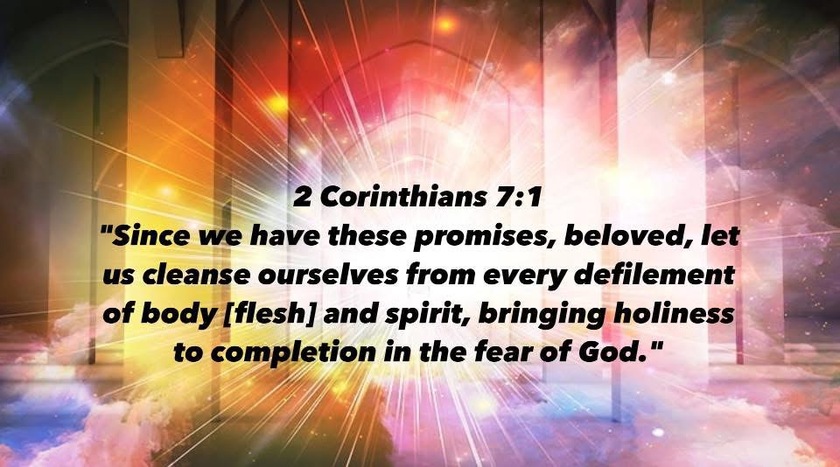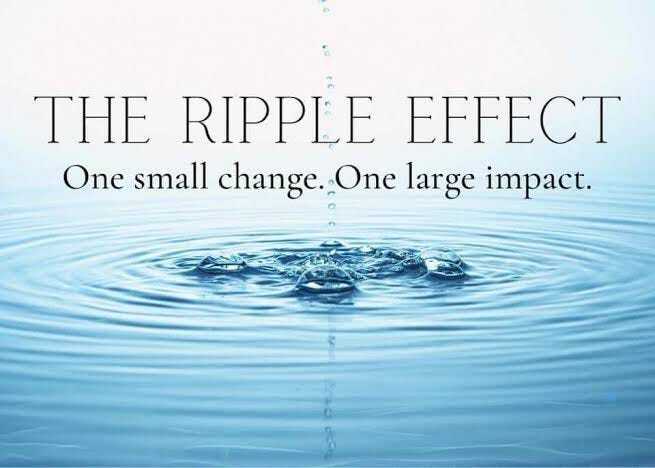Faith isn’t a performance, it’s a plea
Luke 12:1-3
In the meantime, when so many thousands of the people had gathered together that they were trampling one another, he began to say to his disciples first, "Beware of the leaven of the Pharisees, which is hypocrisy. Nothing is covered up that will not be revealed or hidden that will not be known. Therefore, whatever you have said in the dark shall be heard in the light, and what you have whispered in private rooms shall be proclaimed on the housetops."
Jesus begins by warning his disciples about the "leaven of the Pharisees," which he identifies as hypocrisy. The Pharisees, known for their outward displays of piety, often hid their true motives or failings behind a façade of righteousness. Jesus suggests this hypocrisy is like a little leaven that spoils the whole lump. Jesus cautions that this kind of insincerity is dangerous, subtly permeating the character of the whole community.
So, if we, being genuine and sincere followers of Jesus Christ, want to heed Jesus' warnings; how does the certainty of divine revelation, whether of our own hearts or the world’s hidden things, shape the way we live in the present?
What deceptions have we buried in the dark?
Is it possible that this leaven is spoiling us?
It seems to me that this chapter in Luke twelve is a lumping together of the many proverbial sayings of Jesus. And I think Luke did this almost as a gospel commentary. It's very handy to have these sayings working together in this chapter to have them pull together for us a pattern of spiritual thought.
Take for instance,
luke 12:5
"But I will warn you whom to fear: fear him who, after he has killed, has authority to cast into hell. Yes, I tell you, fear him!"
What we should take away from these sayings is if we take Jesus’ words seriously, that nothing hidden will remain concealed (Luke 12:2-3). It calls us to a life of radical transparency before God and, to the extent possible, with others. We shouldn't be ashamed of his work in us before men, nor should we be ashamed of our work before Him. Knowing that our hearts will be laid bare prompts us to regularly examine our motives, confess our sins, and seek alignment between our inner faith and outward actions. The promise that whispers in the dark will be shouted from the housetops can embolden us to speak truth in love, even when it’s uncomfortable, because we know God will ultimately bring justice and clarity. This liberates us from people-pleasing or hiding behind facades, which ties directly back to avoiding the Pharisees’ hypocrisy.
This certainty isn’t just a threat; it’s a comfort. It assures us that God sees the sincerity of our hearts, even when misunderstood by others, and that He will expose evil in due time. I've always taken the position that I can't fool God. So I'm not going to try. I've done whatever I can in my life to sweep out the leaven. Always being straightforward with the Lord. No pretense or assumptions, only thanksgiving for whatever he judges and blesses, condemns or supports. If his word says it, that's good enough for me. I'm not going to question why he condemns something or supports it. He is the authority, not me.
Are there habits, grudges, or desires we’ve buried, hoping no one (or even God) will notice? Maybe it’s pride masked as humility, or resentment cloaked as forgiveness. Have we ever thought to ourselves that we are being righteous when we say a public prayer that couches resentments in the guise of graces? How often have you heard a corporate prayer that carries a sermon-like message?
Do we ever project a version of ourselves, perhaps on social media, at church, or in our families, that doesn’t match our private struggles with sin and unforgiveness? I would call these things "performative faith".
These buried self-deceptions don’t have to define us, but Jesus’ warning suggests they will surface, either through conviction now or revelation later. Eventually the leaven causes the dough to rise up. Leaven works quietly, spreading through the whole batch before you even see the full effect. If we’re harboring hidden things, they might already be spoiling our joy, our trust, or our ability to love others authentically. The Pharisees’ leaven made them blind to their need for grace; if we’re not careful, ours could do the same.
The Pharisees feared losing their status and control, they saw Jesus and his growing popularity as a threat to that power. This had the effect of fueling their hypocrisy, because deep down in their hard hearts they treasured themselves and not the relationship they had with the Father. But Jesus redirects our fear, and thus our loyalty to the One who sees all and judges justly. Jesus teaches us to not hide behind pretense. No virtue-signaling allowed when we're face to face with Jesus. He's not going to be fooled by our outward appearances.
The Pharisees had built an identity around their religious authority, their public image, and their ability to wield influence. And you would think that they might welcome the Messiah into their lives, thankful for the Holy Father and his Son. If for no other reason then to bolster their faith and religious authority. But instead of responding with humility or openness to God’s work through Him [Jesus], they doubled down on the hard-heartedness. They clung to self-preservation over surrender.
Why? Why not surrender to Jesus Messiah?
They treasured their own kingdoms rather than the Kingdom of God, and that’s where the leaven of hypocrisy took root. It’s not just that they pretended to be pious; their pretense was a shield for their deeper idolatry of self.
Jesus came into their world and essentially said, "Your loyalty belongs to the Father, not your image." And with that comes the gut-punch of Luke 12:2-3, nothing hidden stays hidden. No amount of virtue-signaling will hold up when we’re face-to-face with Him. Jesus sees the heart. The Pharisees could fool the crowds with their robes and prayers, but not Him. He’s not impressed by our outward appearances, our polished words, our performative goodness, or our carefully curated personas. He's not interested in our sacrifices of material possessions, or the establishment of our many material structures, no matter how grand and beautiful. Jesus didn't come to curate a museum of architecture; he came to testify to the truth.
Jesus isn’t swayed by our material sacrifices or grand edifices either. He’s not here for the pomp of temples, the splendor of cathedrals, or the wealth we might pour into physical monuments. Those things might impress people, but they don’t move Him.
Jesus summed up everything he did and said when he spoke about his purpose to his executioner Pontius Pilate in John 18:37 where in today's devotion we can hear echoes of it in the background,
"For this purpose, I was born and for this purpose I have come into the world, to bear witness to the truth."
No mention of witnessing the good works of men or the mighty majestic things they've accomplished. The sacrifices He cares about aren’t burnt offerings or shiny buildings, they’re the "broken and contrite heart" (Psalm 51:17) and the living sacrifice of our whole selves devoted to the truth.
Romans 12:1
"I appeal to you therefore, brothers, by the mercies of God, to present your bodies as a living sacrifice, holy and acceptable to God, which is your spiritual worship."
This isn’t about our efforts to impress or perform before God, it’s about our surrender, enabled by God’s mercy. The Pharisees tried to earn their standing through meticulous rule-keeping and outward piety. But Paul starts with "by the mercies of God". It’s not our striving that makes us acceptable; it’s God’s grace.
So, if Jesus was standing there, right before you, and he asked you to describe how you've lived out your faith. How much of what you answer would encompass outward displays of piety and performance? All your prayers, your service to the community of believers, your offerings and tithes, your devotion to the religious order and it's ordinances, your love for the feasts and festivities of the saints, and your commitment to the sacraments.
Would you lean on those things, or would you rather simply reply,
"Lord, have mercy on me, sinner that I am."
Leaning instead on Grace. His Grace. The Grace he offered in and through His Word. Grace alone.
Do you know what that is?
That's trust.
I trust Him to keep his word. He promised grace and mercy and I believe him. I don't need to coax him or ask others to do it for me. He promised that if I call upon his name, he will come and bring me home.
Period.
That's Grace alone.
Jesus isn’t asking for my highlight reel. He already knows it, and He sees past it. He’s not standing there with a checklist, impressed by my attendance record or my offering envelopes. He’s looking at my heart. He looked into the hearts of the Pharisees and found no grace. No surrender. Only them, clutching their robes and holding onto their performances as they counted out their tithed mints down to the most miniscule of seeds.
The Pharisees leaned on their works of righteousness and as a result they lost the relationship; Jesus calls us to lean on His mercy and we find it in service and devotion to his Word. The only works he's looking at are us being doers of the Word. Luke 12 warns us we can’t hide behind piety, and Romans 12:1 shows us we don’t have to, because faith isn’t a performance, it’s a plea.
Amen.




















